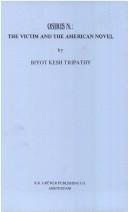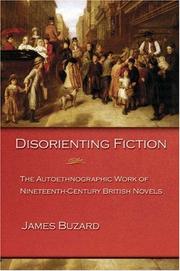| Listing 1 - 5 of 5 |
Sort by
|
Article
Abstract | Keywords | Export | Availability | Bookmark
 Loading...
Loading...Choose an application
- Reference Manager
- EndNote
- RefWorks (Direct export to RefWorks)
SUICIDE --- MODELISATION --- ISOLATION SOCIALE --- INTEGRATION --- ROYAUME-UNI
Book
ISBN: 2872092803 9782872092802 Year: 1993 Volume: 14 Publisher: Louvain-la-Neuve: Academia-Erasme,
Abstract | Keywords | Export | Availability | Bookmark
 Loading...
Loading...Choose an application
- Reference Manager
- EndNote
- RefWorks (Direct export to RefWorks)
Flandre --- Immigratie --- Immigration --- Vlaanderen --- Immigrants --- Flanders (Belgium) --- Flandre (Belgique) --- Emigration and immigration --- Emigration et immigration --- immigranten --- migrantenorganisaties --- Immigrants - Belgium - Flanders. --- Vlaanderen. --- immigration --- Europe --- politique --- minorités ethniques --- Islam --- la Falndre --- isolation sociale --- valeurs communautaires

ISBN: 9060322649 Year: 1985 Publisher: Amsterdam B.R. Grüner
Abstract | Keywords | Export | Availability | Bookmark
 Loading...
Loading...Choose an application
- Reference Manager
- EndNote
- RefWorks (Direct export to RefWorks)
Alienation (Social psychology) in literature --- Aliénation (Psychologie sociale) dans la littérature --- Aliënatie (Sociale psychologie) in de literatuur --- Aliënatie [Sociale ] in de literatuur --- Antihelden in de literatuur --- Antiheroes in literature --- Antihéros dans la littérature --- Isolation sociale dans la littérature --- Sociaal isolement in de literatuur --- Social isolation in literature --- Sociale aliënatie in de literatuur --- Sociale vervreemding in de literatuur --- Vervreemding [Sociale ] in de literatuur --- Victims in literature --- American fiction --- Roman américain --- Victimes dans la littérature --- Isolement social dans la littérature --- History and criticism --- Histoire et critique --- Roman américain --- Victimes dans la littérature --- Isolement social dans la littérature --- Aliénation (Psychologie sociale) dans la littérature --- Antihéros dans la littérature --- Hawthorne, Nathaniel --- Criticism and interpretation --- Melville, Herman --- Twain, Mark --- Lewis, Sinclair --- Bellow, Saul --- Dos Passos, John --- Steinbeck, John --- Crane, Stephen --- Hemingway, Ernest --- Jones, James --- Mailer, Norman
Book
ISBN: 9781847427724 9781847427731 1847427731 1847427723 9781447307419 1447307410 1447307690 1280877502 9786613718815 9781447307693 9781280877506 Year: 2012 Publisher: Bristol [England] : Policy Press,
Abstract | Keywords | Export | Availability | Bookmark
 Loading...
Loading...Choose an application
- Reference Manager
- EndNote
- RefWorks (Direct export to RefWorks)
Taking a broad international perspective, this highly topical book casts light on patterns and processes that either place groups of older adults at risk of exclusion or are conducive to their inclusion.
Social isolation --- Older people --- Social work with older people --- Geriatric social work --- Gerontological social work --- Social work with the aged --- Elder care --- Eldercare --- Exclusion, Social --- Isolation, Social --- Social exclusion --- Social psychology --- Alienation (Social psychology) --- Social distance --- Care --- #SBIB:316.8H14 --- #SBIB:316.8H15 --- Welzijns- en sociale problemen: bejaarden --- Welzijns- en sociale problemen: sociale ongelijkheid en armoede --- Older people. --- Social conditions. --- Government policy. --- Economic conditions. --- Integration sociale. --- Personnes âgees. --- Exclusion sociale. --- Gerontologie sociale. --- Isolement social. --- Personnes âgees --- Social work with older people. --- Social isolation. --- Service social aux personnes âgees. --- Relations entre generations. --- Soins. --- Care. --- Personnes âgées --- Soins gériatriques --- Gériatrie --- Soins infirmiers en gériatrie --- Isolation sociale --- (psychologie) --- Soins et hygiène --- Alimentation --- Santé et hygiène --- Soins à domicile --- Soins hospitaliers --- Soins médicaux

ISBN: 0691095558 0691002320 9786612087820 9786612935398 1282935399 1282087827 1400826675 9781400826674 9780691002323 9780691095554 Year: 2005
Abstract | Keywords | Export | Availability | Bookmark
 Loading...
Loading...Choose an application
- Reference Manager
- EndNote
- RefWorks (Direct export to RefWorks)
This book gives an ambitious revisionist account of the nineteenth-century British novel and its role in the complex historical process that ultimately gave rise to modern anthropology's concept of culture and its accredited researcher, the Participant Observer. Buzard reads the great nineteenth-century novels of Charles Dickens, Charlotte Brontë, George Eliot, and others as "metropolitan autoethnographies" that began to exercise and test the ethnographic imagination decades in advance of formal modern ethnography--and that did so while focusing on Western European rather than on distant Oriental subjects. Disorienting Fiction shows how English Victorian novels appropriated and anglicized an autoethnographic mode of fiction developed early in the nineteenth century by the Irish authors of the National Tale and, most influentially, by Walter Scott. Buzard demonstrates that whereas the fiction of these non-English British subjects devoted itself to describing and defending (but also inventing) the cultural autonomy of peripheral regions, the English novels that followed them worked to imagine limited and mappable versions of English or British culture in reaction against the potential evacuation of cultural distinctiveness threatened by Britain's own commercial and imperial expansion. These latter novels attempted to forestall the self-incurred liabilities of a nation whose unprecedented reach and power tempted it to universalize and export its own customs, to treat them as simply equivalent to a globally applicable civilization. For many Victorian novelists, a nation facing the prospect of being able to go and to exercise its influence just about anywhere in the world also faced the danger of turning itself into a cultural nowhere. The complex autoethnographic work of nineteenth-century British novels was thus a labor to disorient or de-globalize British national imaginings, and novelists mobilized and freighted with new significance some basic elements of prose narrative in their efforts to write British culture into being. Sure to provoke debate, this book offers a commanding reassessment of a major moment in the history of British literature.
Alienation (Social psychology) in literature --- Aliénation (Psychologie sociale) dans la littérature --- Aliënatie (Sociale psychologie) in de literatuur --- Aliënatie [Sociale ] in de literatuur --- British national characteristics in literature --- Brits volkskarakter in de literatuur --- Britse volksaard in de literatuur --- Caractéristiques nationales britanniques dans la littérature --- Culture dans la littérature --- Culture in literature --- Cultuur in de literatuur --- Difference (Psychology) in literature --- Differentie (Psychologie) in de literatuur --- Différence (Psychologie) dans la littérature --- Ik in de literatuur --- Isolation sociale dans la littérature --- Marginalen in de literatuur --- Marginaux dans la littérature --- Moi dans la littérature --- National characteristics [British ] in literature --- Outsiders in literature --- Self in literature --- Sociaal isolement in de literatuur --- Social isolation in literature --- Sociale aliënatie in de literatuur --- Sociale vervreemding in de literatuur --- Vervreemding [Sociale ] in de literatuur --- Volksaard [Britse ] in de literatuur --- Volkskarakter [Brits ] in de literatuur --- 820 "18" --- Engelse literatuur--19e eeuw. Periode 1800-1899 --- 820 "18" Engelse literatuur--19e eeuw. Periode 1800-1899 --- Soi dans la littérature --- Zelf in de literatuur --- English fiction --- National characteristics, British, in literature. --- Alienation (Social psychology) in literature. --- Difference (Psychology) in literature. --- Social isolation in literature. --- Outsiders in literature. --- Culture in literature. --- Self in literature. --- History and criticism. --- National characteristics, British, in literature --- History and criticism --- 19th century --- Love in literature
| Listing 1 - 5 of 5 |
Sort by
|

 Search
Search Feedback
Feedback About UniCat
About UniCat  Help
Help News
News